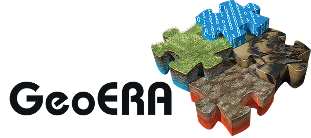Objectives
The objective of the work package is to show how the application of UNFC will provide better harmonization of mineral resource data in Europe, and to demonstrate the strength of UNFC as a tool for more accurate Pan-European mineral inventories. Full European implementation of UNFC has the potential to provide more accurate forecasts, and improve policy formulation and government resource management.
The work will be case study based, but aimed to be Pan-European in nature; it will cover the range of solid mineral resource types, including CRM’s. An eventual implementation of UNFC as a standard tool will thus provide better insights into the European stocks “in the ground” and potential for critical raw materials, and the possibility for future supply from European sources.
Harmonized aggregated data will highlight prospectivity and development issues to be addressed through strategies and policies. Successful implementation, demonstrated through case studies, is expected to increase the accuracy and usability of the existing Pan-European databases on mineral resources
Description of work
The United Nations Framework Classification for Resources (UNFC) aims to make harmonized inventories by classifying and quantifying projects based on (1) their social and economic favourability, (2) the uncertainty of geological knowledge, and (3) the project maturity. UNFC may therefore be applied across projects from uncertain, reconnaissance stage, and under-explored prospects to well characterized and well assessed resources and reserves. Classification may include both primary and secondary resources.
The work package aims to explore the perspective for better and more transparent resource management by applying UNFC to solid mineral resources in Europe. Case studies will demonstrate the applicability across the European resource and policy field and provide guidelines for ease and accuracy of application, thus ensuring that harmonized data are available for future aggregation.
T4.1: Selection of relevant cases to cover metals, industrial minerals, natural stone, and on- and off-shore aggregates across Europe (M1-M4)
Case studies will cover the range of solid mineral resource types, including CRM’s, and different levels of project scale and development, in order to produce an overview of strengths and weaknesses, data availability and gaps.
T4.2: Case study pilots; application of UNFC to European resources across resource types, level of development and policy fields (M4-M28)
The application of UNFC will be explored and evaluated along all three system axes, and eventually applied systematically and coherently to the complete case study portfolio. The pilot will reveal strengths and weaknesses across the targeted systems and environments, and all cases should be carefully documented and systematized for further reference and analysis. Task T4.2 will progress in close cooperation with T4.3 in order to optimize procedures for harmonization and aggregation. A suggested work flow with practical guidelines illustrated by relevant case studies will be produced (D4.1).
T4.3: Review of harmonization issues, data gaps and challenges (M12-M32)
Task4.3 will assist T4.2 in developing a harmonized procedure, for the project, on which the UNFC classification will be based. T4.3 will investigate the case study portfolio on a broader scale in terms of co-alignment, lack of necessary data and other challenges. The findings will be reported in D4.2.
T4.4: Pan-European aggregation pilot (selected resources) (M24-M36)
T4.4 will aim to generate aggregated UNFC classified data to be included in the European mineral resources inventory. Aggregation should be performed and evaluated for the different resource types and selected commodities. The aggregated figures will be compared with existing resource/reserve based estimates, and the added value investigated. A recommendation on if and how to implement the UNFC classification across from national to Pan-European inventories will be issued. T4.4 will ensure the migration of project data to WP3 (D4.3).
